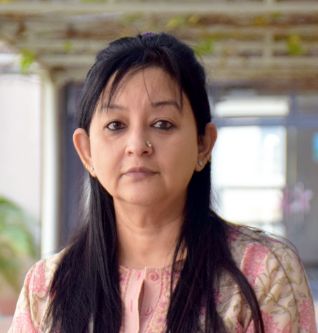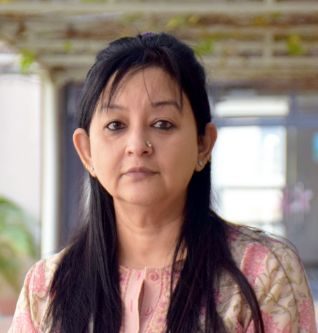
Prof Ritu Dangwal
- Professor, Humanities and Social Sciences

Dr Ritu Dangwal’s primary focus lies in understanding and creating meaningful learning environments that involve researching and re-designing curriculum, assessment, and pedagogy. She has over 20 years of experience working with corporate and with academic institutes.
Dr Dangwal’s specialisation lies in the field of Educational Research and Cognitive Sciences. She is a certified Educational and Vocational Counsellor and has worked with academic institutes such as– NEIPA, AIU, NCERT, NIOS and NIIT Ltd. Prof Dangwal has worked on international projects like- ‘School in the Cloud’, a TED Prize Project (2013). She has also undertaken projects from across the world, from countries such as Bhutan, Central African Republic (CAR), Liberia, Australia, United Kingdom, etc.
Previously, Dr Dangwal has served as Senior Consultant at the Centre for Research in Cognitive Systems (CRCS), the research centre of NIIT Ltd., and Head, Research and Monitoring for ‘Hole-in-the-wall Education Ltd.’ Along with her academic and corporate experience, Dr Dangwal has assisted governments in creating inclusive education spaces.
Dr Dangwal was the TEDx speaker at an event hosted by the US Consulate in Secunderabad in 2015 and has visited U.S.A under the ‘International Visitor Leadership Program’ hosted by the State Department, U.S.A, in 2012.
Qualifications
- PhD Psychology
- Diploma in Educational and Vocational Guidance (Counsellor)
- MA (Psychology)
- Diploma in Industrial Relations and Personnel Management
- BA (Psychology)
Read more
Experience
- 35 Years
Courses taught
- Fundamentals of Psychology
- Communication Proficiency and Professional Skills
- Oral and Written Communication
- Research and Publication Ethics
- Professional Ethics and Values
- Managerial Communication
- Professional Life Skills (co-faculty)
- Selected Readings (co-faculty)
Research areas
- Cognitive Sciences
- Educational Technology
- Learning, Pedagogy and Assessment
- Social and Personality Psychology
- Collaborative Learning Design
Consulting areas
- Research work in social sector for Educational Technology
- Developing psychometric tools and instruments
- Writing research papers in the subject of Educational Technology
- Conducting group or individual emotional, vocational counselling
Consultancy
- NIIT Foundation
- Government projects in education
Selected Publications
- S. Mitra and R. Dangwal, “Effects of Internet access during examinations,” Journal of Learning for Development, vol. 9, no. 1, pp. 129-136, 2022
- R. Dangwal, “To develop communication and comprehension among students – A pilot study,” Online International Interdisciplinary Research Journal, vol. 11, no. 05, Sept./Oct. 2021, http://www.oiirj.org/oiirj/sept-oct2021/22.pdf.
- S. Mitra and R. Dangwal, “Evolution of the hole-in-the-wall: A status review,” Prospects, 2021, https://doi.org/10.1007/s11125-021-09552-y
- R. Dangwal, “Reading comprehension ability among primary school going children in rural Punjab using SOLE, ” International Journal of Educational Policy Research and Review, vol.5, no. 7, pp. 117-136, Jul. 2018, https://www.journalissues.org/IJEPRR
- S. Mitra and R. Dangwal, “Acquisition of computer literacy skills through self-organizing systems of learning among children in Bhutan and India,” Prospects: Quarterly Review of Comparative Education, vol. 47, no. 3, pp. 275-292, 2017
- R. Dangwal, R. Chopra, (2023). HiWEL Learning Stations and Confidence Levels of Underprivileged Children: Indian Context. International Journal of Indian Psychology, 11(4), 2471-2483. DIP:18.01.230.20231104, DOI:10.25215/1104.230. https://ijip.in/articles/hiwel-learning-stations-and-confidence-levels/
- R. Dangwal, C. Kapoor. (2023) Peer mentoring by university students teaching underprivileged youth– towards a sustainable model in India. International Journal of Innovative and Applied Research, Volume 11, Issue 07. [ Peer Reviewed, Referred, Indexed and Open Access Journal ISSN 2348-0319].
- Dangwal. (2023). Change Maker Life Skill Program – A Pilot Study by NIIT Foundation. Int. J. Adv. Multidiscip. Res. 10(5): 17-28. DOI: 10.22192/ijamr. https://ijarm.com/pdfcopy/2023/may2023/ijarm3.pdf
- R. Dangwal (2022). Impact of Computer literacy, Communication and Comprehension skills using an online pedagogical tool during COVID. Journal of Emerging Technologies and Innovative Research (JETIR). Volume 9, Issue 11 www.jetir.org (ISSN-2349-5162], [UGC approved Journal No 63975]. https://www.jetir.org/papers/JETIR2211194.pdf
- S. Mitra and R. Dangwal, J. Jaison (2022), “Human Resources Development for The Business Process Outsourcing Industry in India – A Scheme for Quality Improvement” Iconic Research And Engineering Journals, Volume 6 Issue 2, Page: 119-125. https://www.irejournals.com/paper-details/1703764
Publications
Research papers
- S. Mitra and R. Dangwal, “Effects of Internet access during examinations,” Journal of Learning for Development, vol. 9, no. 1, pp. 129-136, 2022.
- S. Mitra and R. Dangwal, “A study of NIIT University students’ perception towards their own perception skills, ” presented at Entente, Neemrana, Rajasthan, India, 2021.
- R. Dangwal, “To develop communication and comprehension among students – A pilot study,” Online International Interdisciplinary Research Journal, vol. 11, no. 05, Sept./Oct. 2021, http://www.oiirj.org/oiirj/sept-oct2021/22.pdf.
- S. Mitra and R. Dangwal, “Evolution of the hole-in-the-wall: A status review,” Prospects, 2021, https://doi.org/10.1007/s11125-021-09552-y.
- R. Dangwal, “Reading comprehension ability among primary school going children in rural Punjab using SOLE, ” International Journal of Educational Policy Research and Review, vol.5, no. 7, pp. 117-136, Jul. 2018. [Online]. Available: https://www.journalissues.org/IJEPRR.
- S. Mitra and R. Dangwal, “Acquisition of computer literacy skills through self-organizing systems of learning among children in Bhutan and India,” Prospects: Quarterly Review of Comparative Education, vol. 47, no. 3, pp. 275-292, 2017.
- R. Dangwal and Z. Gupta, “Impact of IT literacy through HiWEL learning stations on juvenile children,” British Journal of Educational Technology, vol. 43, no. 4, pp. E 117- E124, Jul. 2012. [Online]. Available: http://onlinelibrary.wiley.com/doi/10.1111/j.1467 8535.2012.01303.x.
- R. Dangwal and S. Gope, “Indian adaptation of motivated strategy learning questionnaire in the context of hole-in-the-wall,” International Journal of Education and Development using ICT, vol. 7, no. 3, 2011 . [Online]. Available: http://ijedict.dec.uwi.edu/viewarticle.php?id=1275).
- S. Mitra and R. Dangwal, “ Limits to self-organizing systems of learning—The Kalikuppam experiment,” British Journal of Educational Technology, vol. 41, no. 5, pp. 672–688, Sep. 2010 . [Online]. Available: https://bera-journals.onlinelibrary.wiley.com/doi/abs/10.1111/j.1467-8535.2010.01077.x.
- R. Dangwal and P. Kapur, “Social networking effect at HiWEL kiosks amongst children,” Multicultural Education and Technology Journal, vol.3, no. 4, 2009.
- R. Dangwal and P. Kapur, “Learning through teaching: Peer-mediated instruction in minimally invasive education,” British Journal of Educational Technology, vol. 40, no.1, pp. 5-22, Jan. 2009. [Online]. Available: https://www.emerald.com/insight/content/doi/10.1108/17504970911004291/full/html).
- R. Dangwal and P. Kapur, “Children’s learning processes using unsupervised “hole in the wall” computers in shared public spaces,” Australasian Journal of Educational Technology, vol. 24, no.3, pp. 339-354, 2008.
- S. Mitra and R. Dangwal, ,and L. Thadani, “Effects of remoteness on the quality of education: A case study from North Indian schools,” Australasian Journal of Educational Technology, vol. 24, no. 2, pp.168-180, 2008, . [Online]. Available: http://www.ascilite.org.au/ajet/ajet24/mitra.html.
- R. Dangwal, “Public computing, computer literacy and educational outcomes: Children and computers in rural India,” in Towards sustainable and scalable educational innovations informed, C.K. Looi et al.,Eds., 2005, vol. 133, pp. 59-66. 2005. [Online]. Available: https://dl.acm.org/doi/10.5555/1563334.1563344.
- S. Mitra, R. Dangwal, S. Chatterjee, S. Jha, R. S. Bisht and P. Kapur , “Acquisition of computing literacy on shared public computers: children and the hole in the wall,” Australasian Journal of Educational Technology.
- S. Mitra and R. Dangwal, “Computing skills acquisition – Emerging patterns in the MIE model,” International Journal on Information Technologies and International development, vol. 2, no. 4, pp. 41-60, 2005.
- R. Dangwal, P. Kapur, and S. Jha, “Colloquium impact of Minimally Invasive Education on children – An Indian perspective,” British Journal of Educational Technology, 2003, doi:10.1111/j.1467-8535.2005.00514.x.
- R. Dangwal, “Cognitive systems – Perfect companions,” DataQuest, pp. 131-134, 2000.
- S. Mitra and R. Dangwal, “Learning styles and perceptions of self,” International Educational Journal, vol. 1, 1999 . [Online]. Available: http://iej.cjb.net.
- R. Dangwal and S. Mitra, “Learning styles inventory – In the Asian context,” Indian Journal of Psychological Research, 1998 . [Online]. Available: https://www.semanticscholar.org/paper/Learning-Styles.
- R. Dangwal, “Learning from kiosks: Observations and insights,” F-13 Proceedings, 1999.
- R. Dangwal, “Adult education and training methodologies,” Educational Growth and Development, India: Commonwealth Publishers, 1996.
- R. Dangwal, “Learning styles – An answer to many educational problems,” Linkage Magazine, Nov. 1996.
- R. Dangwal, “Need satisfaction, job involvement & organizational hierarchy,” Manpower Journal, vol. 31, no. 3, Oct./Dec. 1995.
- R. Dangwal, “Need strength, need satisfaction and organizational hierarchy,” Indian Journal of Current Psychological Research, vol. 5, no. 2, pp.77-84.
Conference papers
- S. Mitra and R. Dangwal, “A study of NIIT University students’ perception towards their own perception skills,” presented at Entente, Neemrana, Rajasthan, India, 2021.
Awards and recognition
- TEDx speaker at Secunderabad hosted by US Consulate in 2015
- ‘International Visitor Leadership Program’ in 2012 by American State Department.
- Recipient of Silver medal (2nd position) in MA, 1987
- Roll of Honour, for overall performance in BA, 1983
- Recipient of the Best Education Research Article in an Open Access Journal, 2005 by Communication of Research Special Interest Group of the American Educational Research Association, https://ajet.org.au/index.php/AJET/article/view/1328/699
Professional Activities and Achievements
Reviewer for international journals
- Journal for Multicultural Education (Current reviewer)
- AJET - Australasian Journal of Educational Technology
- BJET - British Journal of Educational Technology
- ETS -Journal of Educational Technology & Society
- Higher Education, Skills and Work-Based Learning (Current reviewer)
Other Interests
- Reading
- Music and dancing
- Yoga


